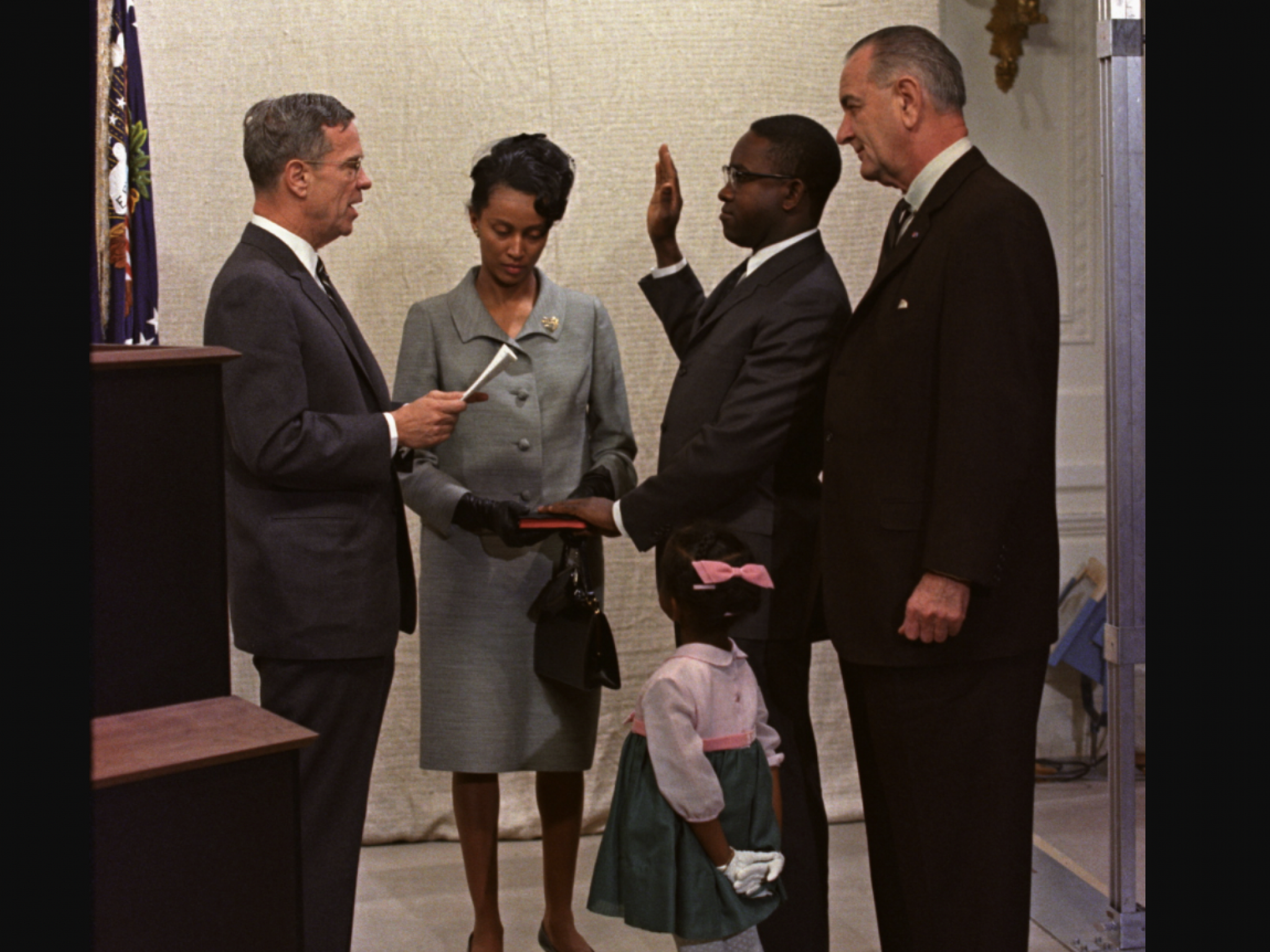
As the Fed faces increasing pressure to address the highest U.S.inflation rate in 40 years, Benzinga takes a look back at a historic member of the Board of Governors of the Federal Reserve.
What Happened: Andrew Brimmer became the first Black member in the Central Bank’s Board of Governor’s history, after being nominated to the board by President Lyndon Johnson on Feb. 28, 1966. Brimmer's term as a Fed Governor began March 9, 1966 and he served until Aug. 31, 1974.
At Brimmer’s swearing-in ceremony, Johnson said he did not expect Brimmer to be “an easy money man or a tight money man.” Rather, Johnson said, “I expect him to be a right money man.”
During his initial years at the Fed, Brimmer supported a gradual increase in interest rates to fight inflation, but then was among the first board members to call for reducing rates when Congress raised taxes and cut spending in 1968.
In later years, he used his position on the board to highlight the economic challenges faced by Black Americans.
“I do feel that the economic plight of Blacks is a serious matter,” he told The New York Times in 1973. “So I bring the same economist’s tool kit to that subject as other economists bring to examine other national economic problems.”
Brimmer served a little more than eight years of his 14-year term, and left to join the faculty of the Harvard Business School and start a consulting firm, Brimmer & Company, in 1974.
In 1995, he was chosen to head a five-member financial control board to address a financial crisis in the District of Columbia. He stepped down from the position after three volatile years in the job.
Also Read: 11 Black Wall Street Bankers, Brokers And Financiers Who Broke Early Barriers
Life Before The Fed: Brimmer was born in Newellton, Louisiana, in 1926. He grew up the son of a sharecropper and attended schools in the racially segregated Mississippi River farm town. To earn extra money, his mother raised chickens and cows.
Later in life, Brimmer reflected on his upbringing and said his parents had high standards and values, and their constant encouragement instilled self-confidence in their children. "My parents encouraged me to stay in school," he said. "They wanted me to do something that was worthwhile."
Between May 1945 and November 1946, Brimmer served in the U.S. Army. He went on to attend the University of Washington in Seattle on the G.I. Bill, earning an undergraduate degree in economics in 1950 and a master’s degree the following year.
Brimmer received a Fulbright scholarship to study in India before attending the Massachusetts Institute of Technology and then Harvard University, where he received his PhD in 1957.
Related Link: Maggie Lena Walker: Celebrating A Barrier-Smashing Financial Pioneer
Brimmer’s Final Years: Brimmer served on the Tuskegee University board of directors from 1965 to 2010. As the board’s chairman for 28 years, he was the longest-serving chairman in the school’s history. The institute’s business school building is named for Brimmer.
Brimmer died on Oct. 7, 2012 at age 86, at George Washington University Hospital in Washington. He is survived by his daughter, Esther Dianne Brimmer, who served as assistant secretary of state for International Organization Affairs in the Obama administration.







